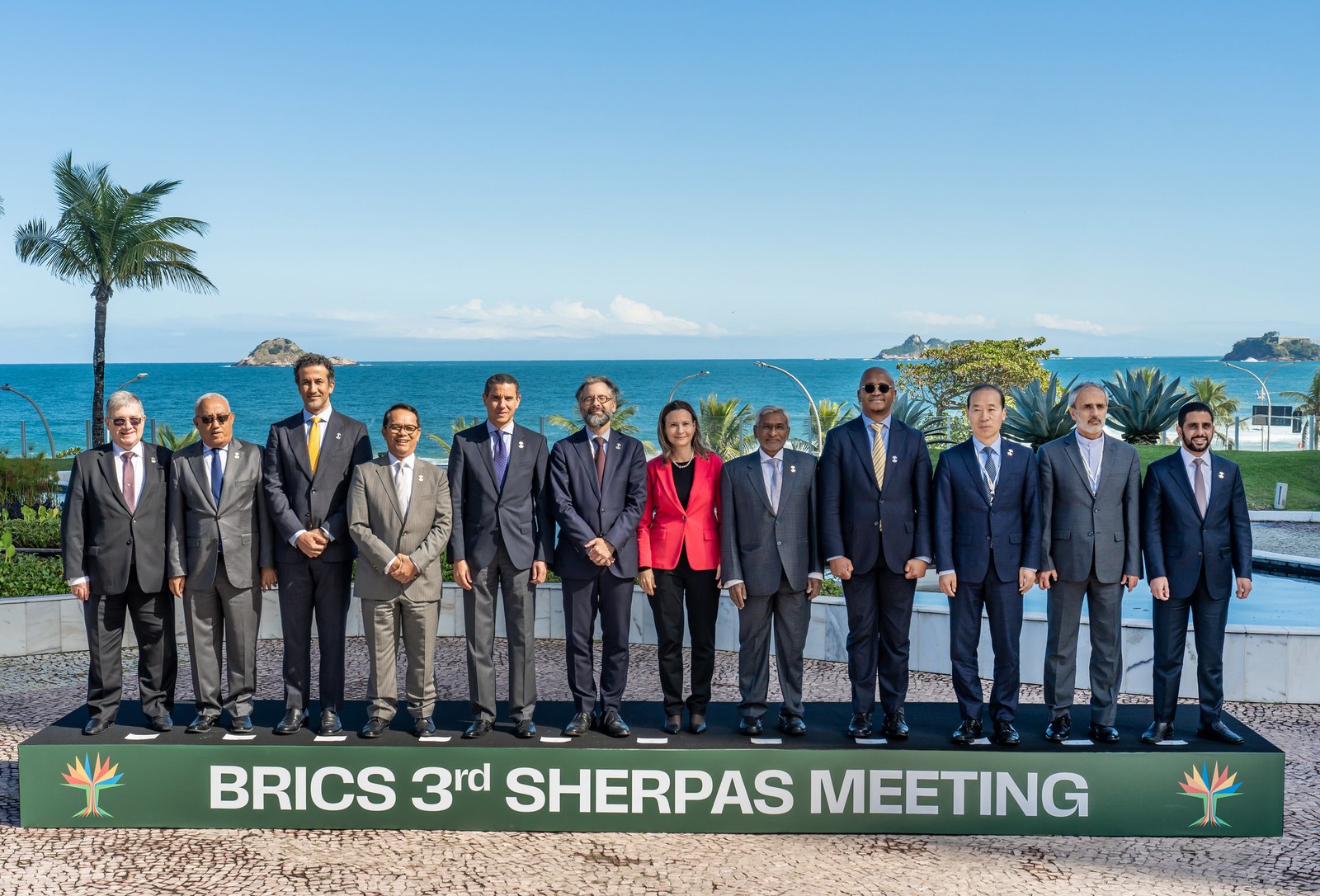BRICS negotiators advance declarations on health, climate change, and artificial intelligence
With a focus on initiatives that directly impact people’s lives, the political negotiators’ meeting charts a path toward the Leaders’ Summit. The partnership to eliminate socially determined diseases gains traction

Prioritizing concrete issues that directly affect people’s lives—such as fighting hunger and poverty—is the guiding principle of Brasil’s BRICS presidency. This agenda shaped the main outcomes of the bloc’s third and final Sherpa Meeting this week. Brasil’s strategy seeks to rebalance the international agenda—often dominated by geopolitical disputes—by elevating priorities like poverty eradication, food security, and stronger health systems.
The five-day meeting of political negotiators from Global South nations wrapped up on Friday, July 4 in Rio de Janeiro, with positive assessments from the Brazilian presidency in three key areas: cooperation on the elimination of socially determined diseases, on artificial intelligence (AI), and on combating climate change. The gathering laid the groundwork for declarations expected to be adopted on each of these themes.
“Brasil’s effort focused on bringing these issues to the center of major global groups’ agendas. Holding the presidency gives us the opportunity to do exactly that—just as we did at the G20 with the launch of the Global Alliance Against Hunger and Poverty, and are doing now with this new partnership to eliminate what we call ‘poverty diseases’—tuberculosis, leprosy, malaria, dengue, yellow fever,” said Ambassador Mauricio Lyrio, Brasil’s Sherpa and coordinator of the meeting.
Another major milestone was the institutional development and formalization of BRICS processes—a top priority for Brasil’s coordination efforts this year, particularly following the bloc’s recent expansion to include new member states and partners. Progress was made on the design of the new rotating presidency model and on procedures for partner countries, which now number ten with the addition of Vietnam.
On the Road to COP30
Agreements calling for concrete, ambitious actions to address climate change stood out not only because of the urgency of the issue, but also because Brasil will chair the 30th United Nations Climate Change Conference (COP30) later this year. For Global South nations, climate finance remains the central concern. These countries argue that financial mechanisms must reflect historical responsibility and differences in economic capacity between developed and developing countries. “The general understanding is that more resources are needed—including from wealthy countries, which were the biggest producers of greenhouse gases. They must contribute to finance the transition in countries that are still developing,” said Lyrio.
Previous meetings
The first Sherpa Meeting, held in February at the Itamaraty Palace in Brasilia, resulted in unanimous approval of the priority issues proposed by Brasil. A central point was the review of the Strategic Partnership on Economic Affairs, a five-year plan now being renewed under Brasil’s leadership. President Luiz Inácio Lula da Silva attended that session and emphasized the importance of multilateralism in shaping a more balanced global agenda.
The second meeting, held in April in Rio de Janeiro, was marked by the first-ever participation of civil society representatives. The joint session between Sherpas and leaders of the BRICS People-to-People (P2P) pillar signaled a significant shift in how the group incorporates social demands into its decision-making process. One consensus that emerged was that the New Development Bank (NDB) should serve as the main driver of industrialization in the Global South.
English version: Tadeu Azevedo (POET/UFC)
Proofreading: Enora Lessinger (POET/UFC)